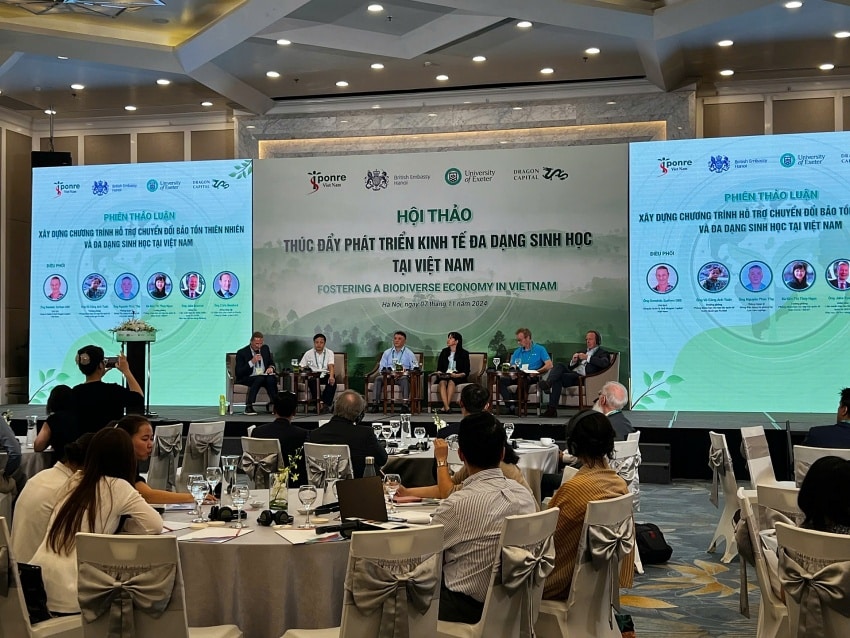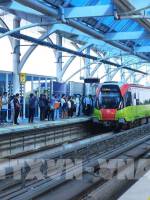
According to the 2024 World Population Review rankings, Vietnam ranks 14th globally and is among the top three Southeast Asian countries in terms of biodiversity richness. However, the country is facing rapid ecosystem degradation due to pressures from socioeconomic development, population growth, unsustainable land use practices, natural resource exploitation, environmental pollution, and the impacts of climate change.
Prime Minister Pham Minh Chinh previously stated that, “Addressing climate change and restoring nature must become the highest priority in all development decisions.”
This commitment is reflected by the National Biodiversity Strategy, and focuses on developing innovative financial mechanisms to support conservation efforts.
On November 7, the Institute of Strategy and Policy on Natural Resources and Environment (ISPONRE), the British Embassy, the University of Exeter, and Dragon Capital Vietnam jointly organised a seminar themed “Fostering a Biodiverse Economy in Vietnam” to explore solutions to the challenges of balancing economic development with the conservation of natural ecosystems.
“The government of Vietnam has made firm commitments to promoting biodiversity conservation while ensuring that economic development and biodiversity protection go hand in hand. This seminar provides a valuable opportunity for stakeholders to discuss and develop long-term strategies to conserve natural resources for future generations,” said Nguyen Dinh Tho, director general of ISPONRE.
“The private sector plays a crucial role in contributing to Vietnam’s biodiversity protection. We have been working with ISPONRE to explore, study, and propose financial mechanisms that align with the government’s direction and the nation’s goals,” said Dominic Scriven OBE, chairman of Dragon Capital Vietnam.
The seminar also emphasised the value of natural capital, a critical factor for Vietnam’s environmental and socioeconomic wellbeing. Protecting natural resources is not only vital for mitigating climate change, but also for ensuring long-term sustainable development.
Professor Lisa Roberts, president and vice-chancellor of the University of Exeter stated that “This seminar is a testament to international cooperation in addressing global challenges like natural resource degradation. By combining the University of Exeter’s strength in biodiversity economics with our partners in Vietnam, we can create solutions that protect the environment while driving economic growth.”
Long-term partnerships between domestic and international organisations, along with the mobilisation of financial resources from both the public and private sectors, will play a critical role in supporting Vietnam’s biodiversity conservation efforts.
Marcus Winsley, deputy head of mission at the British Embassy, committed to continue supporting Vietnam on its journey towards building a sustainable economy “This seminar underscores our shared commitment to tackling global challenges such as climate change and habitat loss, while deepening the long-standing partnership between our two nations.”
Hazy Tran




